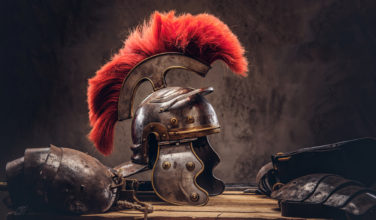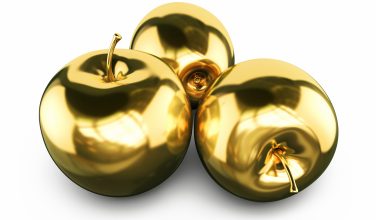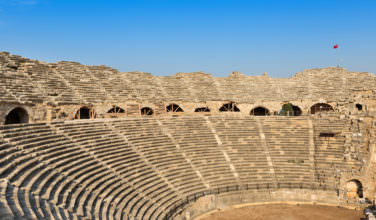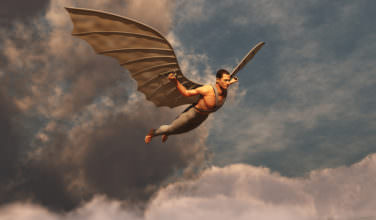Who Were the Maenads of Greek Mythology?
Comments Off on Who Were the Maenads of Greek Mythology?
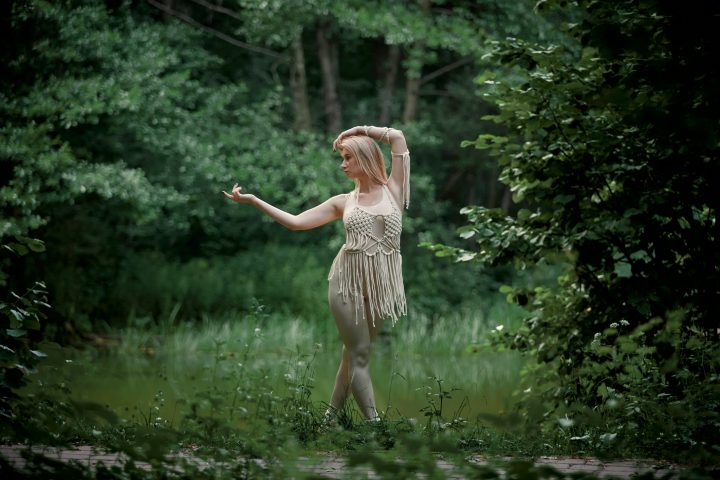 The Maenads of Greek mythology were a group of female followers of the god Dionysus. They were often depicted in art and literature as wild, ecstatic women, known for their frenzied, ecstatic dancing and chanting. They were seen as powerful and dangerous, yet also crucial to the worship of Dionysus and the cult of the god. The Maenads were an important part of Greek religion, and there is a rich body of literature, art, and mythology surrounding them.
The Maenads of Greek mythology were a group of female followers of the god Dionysus. They were often depicted in art and literature as wild, ecstatic women, known for their frenzied, ecstatic dancing and chanting. They were seen as powerful and dangerous, yet also crucial to the worship of Dionysus and the cult of the god. The Maenads were an important part of Greek religion, and there is a rich body of literature, art, and mythology surrounding them.
Origins and Role in Dionysian Worship
The Maenads were originally part of Dionysus’ retinue of female followers. They were known as Bacchae or Bacchantes by the Greeks, and were particularly associated with the cult of the god. The Maenads were known to be devoted to Dionysus and to participate in his cult activities, such as the Bacchic processions and the Bacchic revels. It was thought that the Maenads were filled with an ecstatic frenzy when they took part in these activities, and that they were driven to a state of intoxication by the god’s presence.
The Maenads were believed to be the embodiment of the god’s power and presence, and their frenzied dancing and chanting were seen as an expression of Dionysus’ influence. The Maenads were also believed to possess supernatural powers, and were thought to be able to perform feats such as raising the dead and speaking with animals.
Appearance and Characteristics
The Maenads were often depicted in art as wild, ecstatic women, wearing a distinctive costume of fawn skin and ivy wreaths. They were often shown with a thyrsus, a staff entwined with ivy and topped with a pine cone, which was a symbol of Dionysus. The Maenads were also known to carry vessels of wine and to wear wild animals such as snakes, lions, and panthers as they danced and sang.
The Maenads were known for their ecstatic dancing, which was said to be wild and frenzied. They were believed to be filled with a divine frenzy and to be able to perform superhuman feats in their frenzied state. The Maenads were also believed to be capable of speaking with animals and performing feats such as raising the dead.
Portrayal in Greek Mythology
The Maenads were often featured in Greek mythology, where they were often portrayed as dangerous and powerful. They were believed to be capable of committing acts of violence and destruction, such as tearing apart animals and even people. In the myth of Orpheus and Eurydice, the Maenads were said to have killed Orpheus in a frenzy of rage. The Maenads were also said to have destroyed the city of Thebes in their frenzy.
The Maenads were also believed to be capable of performing divine acts, such as raising the dead. In the myth of Pentheus, the Maenads were sent by Dionysus to bring Pentheus back from the dead. In the myth of Dionysus and Ariadne, the Maenads were said to have saved Ariadne from certain death.
The Maenads were a group of female followers of the god Dionysus. They were often depicted in art and literature as wild, ecstatic women, known for their frenzied, ecstatic dancing and chanting. They were seen as powerful and dangerous, yet also crucial to the worship of Dionysus and the cult of the god. The Maenads were an important part of Greek religion, and there is a rich body of literature, art, and mythology surrounding them.
They were often depicted in art as wild, ecstatic women, wearing a distinctive costume of fawn skin and ivy wreaths. They were known for their frenzied dancing and chanting, and were believed to be capable of performing divine acts, such as raising the dead. The Maenads were often featured in Greek mythology, where they were often portrayed as dangerous and powerful. They were an important part of Greek religion and mythology, and continue to be an important part of our understanding of Greek religion and mythology today.
Source:
Categorized in: Greek Mythology
This post was written by Greek Boston


